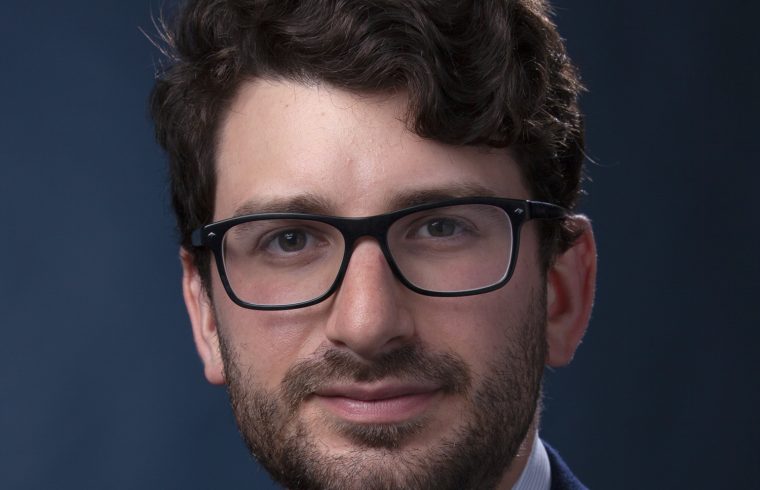WASHINGTON — Democrats pressed Corey Lewandowski at a contentious House hearing on Tuesday, with at least one member calling for the former Trump campaign manager to be held in contempt for following a White House directive to limit the scope of his testimony.
“You’re not going to stonewall me and my questioning!” Rep. David Cicilline, D-R.I., told Lewandowski, suggesting that lawmakers hold the former Trump aide in contempt of Congress. House Judiciary Committee Chairman Jerry Nadler, D-N.Y., said he would take the idea under advisement.
Nadler himself said as the hearing began that the White House’s effort to stop or limit former staff from speaking fully before Congress amounted to a “shocking and dangerous assertion of executive privilege and absolute immunity.”
“The White House is advancing a new dangerous theory of crony privilege. It makes absolute immunity look good by comparison. Where are the limits?” he asked at the hearing. “This is a cover-up, plain and simple.”
The White House on Monday night invoked executive privilege over any discussions Lewandowski might have had with President Donald Trump and other top White House staff that were not already included in special counsel Robert Mueller’s report.
The White House also ordered two former top aides to defy congressional subpoenas, with White House counsel Pat Cipollone writing to Nadler that “constitutional immunity” protected Rob Porter, the ex-White House staff secretary, and Rick Dearborn, who served as deputy chief of staff, from having to testify. The White House was backed up by the Justice Department.
Porter, Dearborn and Lewandowski had all been subpoenaed to appear before the committee for Tuesday’s hearing, titled “Presidential Obstruction of Justice and Abuse of Power.”
In his opening statement at the hearing, Lewandowski told the panel that Democrats had sold Americans “a false narrative” about possible collusion between the campaign and Russia during the 2016 presidential race.
“What there has been, however, is harassment of the president from the day he won the election,” Lewandowski said.
Nadler asked Lewandowski whether he had met with Trump alone in the Oval Office in June 2017, as referred to in Mueller’s report, and discussed limiting the scope of the Mueller investigation. Lewandowski asked for the committee to provide him with a particular citation in the report before he would answer the question.
Lewandowski dodged other questions asked by Democrats. “The White House has directed me that I not disclose the substance of any conversations with the president or his advisers,” he said.
During an exchange with Rep. Steve Cohen, D-Tenn., Lewandowski said that Trump’s request that he deliver a message to then-Attorney General Jeff Sessions to limit the Mueller inquiry had not violated any laws.
“I didn’t think the president asked me to do anything illegal,” he said.
The hearing was the first the committee had held since it passed a measure defining the process of investigating the president’s possible obstruction of justice with a view to determining whether to recommend articles of impeachment against Trump to the full House.
Trump appeared satisfied with his former aide’s opening comments, tweeting a few minutes later that Lewandowski’s remarks at the top of the hearing had been “beautiful.”
GOP lawmakers on the committee defended Lewandowski’s decision to follow the White House’s orders to withhold information, and accused Democrats of treating Trump’s former aide unfairly.
Nadler had blasted the White House’s limits ahead of the hearing. “The President would have us believe that he can willfully engage in criminal activity and prevent witnesses from testifying before Congress — even if they did not actually work for him or his administration,” Nadler said in a statement on Monday night.
“If he were to prevail in this cover-up while the Judiciary Committee is considering whether to recommend articles of impeachment, he would upend the separation of powers as envisioned by our founders,” he added.
White House deputy press secretary Steven Groves, with regard to Porter and Dearborn, said that previous administrations had taken similar legal positions regarding their staff.
Groves added that while Lewandowski would testify about what was in Mueller’s report, information about his communications with Trump or the president’s senior advisers “not already disclosed in the Mueller report … remains confidential. Congress cannot compel disclosure of the substance of those communications, and Mr. Lewandowski has been directed not to testify about them.”
Rob Porter’s lawyer, Brant W. Bishop, said in a statement Tuesday that his client was “under conflicting and contradictory directives from two coequal branches: Congress has instructed him to testify and the President has instructed him not to do so.”
“Mr. Porter’s absence today reflects his respect for the constitutional responsibilities of all three branches of the federal government in resolving this conflict. Congress and the President may reach an accommodation, or the Judiciary may resolve the conflict in the courts,” Bishop said. “As Mr. Porter communicated to Chairman Nadler yesterday evening, if and when this conflict is resolved, he will fulfill his duty, whether that means to provide appropriate testimony or to uphold the prerogatives of the Office of the Presidency.”
The widely expected White House moves on Porter, Dearborn and Lewandowski — each of whom were featured prominently in Mueller’s report — echoed earlier attempts to curtail or prevent former staffers from testifying before Congress, such as former White House counsel Donald McGahn.
Rebecca Shabad and Alex Moe reported from Washington, and Allan Smith from New York.
Kristen Welker, Hallie Jackson, Peter Alexander and Carol E. Lee contributed.













